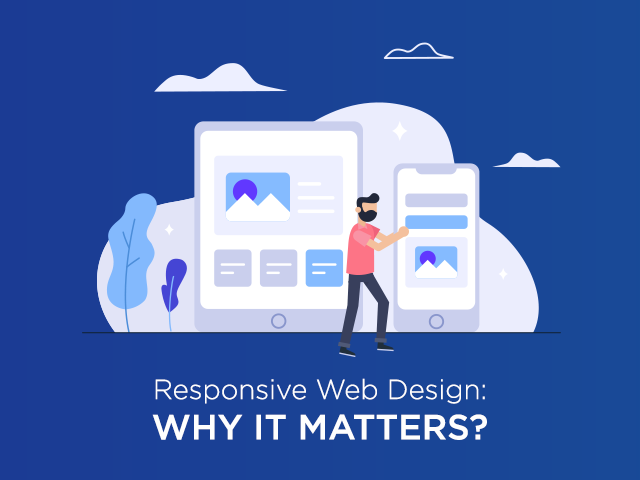
Responsive Web Design: Why it Matters?
In this digital era, more and more people are using mobile devices, such as tablets and smartphones, for tasks that were only suitable for desktops. In other words, mobile devices are taking over Internet surfing.
Not just surfing. It is everything from checking emails, browsing different social media outlets, and online shopping. Since mobile Internet usage is booming, it’s extremely crucial that your site is mobile friendly.
You don’t need to have different designs for desktop users and mobile users. With responsive web design, you can manage both types of users. In this post, we’ll tackle the importance of responsive web design and why it matters.
What is Responsive Web Design?
Responsive web design means that the overall structure of the website stays the same on any device. For instance, when a person accesses a website on their personal computer, they see the entire view of the site.
However, if that user visits the same website from their mobile devices, the website will adjust to fit on the screen. With that said, responsive web design will take away the worry of having multiple sites for different devices. Thus, rest assured that your website works correctly on any device.
Aside from that, there are a few other reasons why you should adopt a responsive design for your site. It can undoubtedly affect your user experience, conversion rates, SEO, and other elements of your business that add up to your growth.
Lower Bounce Rates
For the most part, bounce rate indicates the rate of visitors to a site who steer away from it after viewing a single page. As we have stated above, responsive design means users will stay longer on your website which lessens your bounce rate.
Users will, without a doubt, be more willing to navigate and see other pages on your site. Plus, they will enjoy exploring what you have got to offer.
Refined User Experience
With responsive web design, you can have a much better user experience. The time users spend on your website is a crucial factor specifying the quality of user experience. So, if they find it difficult to use or navigate because of the constant zooming and pinching, they will not stay a little longer on your site.
However, if your site responds and adjusts to the screen size, then users will never have problems or issues accessing buttons, links, menus, or filling out forms. Thus, their experience will be much better, and they will spend more of their time on your website.
Website usability and better user experience can then promote additional word of mouth referrals. Meaning, expect for more new customers and clients for your business.
No Penalty for Duplicate Content
Different versions of your site simply mean that you are producing duplicate content. Though search engines, like Google, are much smarter today, they still have to understand which site version is way more important.
So, if you are using the mobile version of your website, your content stays the same although URL is different. It will make both versions to have a lower rank since search engines will not be able to determine which content is relevant.
If you want these versions to rank fairly in search engines, you won’t need to develop two different SEO campaigns and strategies. Instead, you’d be able to invest more of your money in creating unique and original content for both mobile and desktop version of your website.
And because having two different SEO tactics needs too much money and time, most site owners turn to and adopt a canonical tag on their mobile site that directs to the desktop version. In result, most mobile versions aren’t, for the most part, ranked in Google at all.
Improved SEO
With responsive design, you can also improve or boost your search engine rank. Google, as of April 2015, takes into account the responsiveness of a site. It will determine or affect your site’s rank in the search engine results page.
If your site is not responsive enough, Google will put your site in a lower rank. If it meets the mobile-friendly assessment, your site will rank higher.
Higher Conversion Rates
Since responsive web design helps lower bounce rate, visitors are likely to spend more time on your website. Therefore, you can build trust with your visitors and improve the user experience. Enhanced user experience can then lead to higher conversion rates, whether it means booking a call, making a purchase, or filling up a newsletter.
Takeaway
There are tons of perks and benefits of adopting a responsive web design for your website. If your site is not responsive yet, consider reaching out to any graphic and web design experts. By that, you’ll have an idea which pages are crucial, which elements you can remove, and how much content you want to keep on your website.
Stay ahead of your competitors and take advantage of responsive designs. It’s more likely that your competitors are not using responsive designs, so make use of responsive designs now and take their potential losing customers away.
what do you think?